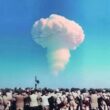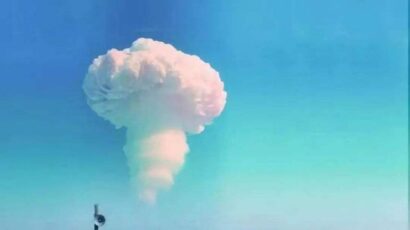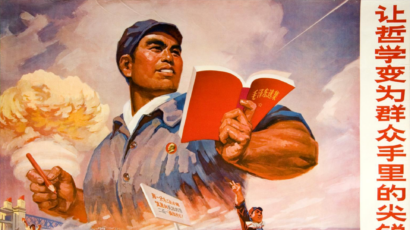China and disarmament: Three questions going forward
By Hua Han, December 8, 2016
Amid today's possible transformation from a US-centric global order to a multilateral one—as my good friend Gregory Kulacki has characterized it in this roundtable—nuclear disarmament is once again featuring high among the topics discussed by strategists, scientists, and policy makers. Kulacki calls on China to take a more active role in global efforts to abolish nuclear weapons, and this is a reasonable expectation. China, with its growing power and influence, is obligated to take more responsibility over global governance in general and nuclear disarmament in particular. Indeed, under Xi Jinping, China has demonstrated aspirations greater than those of "just another national power asserting its own interests," to borrow Kulacki's phrase. China now seeks to become a great power that—through its own approach—offers public goods and seeks out common interests with other countries.
But any discussion of China's role in the emerging nuclear order must be based on an understanding of how the global nuclear order has evolved and what forces have shaped it. In this order, which was established in the 1950s, China—along with Britain, France, and others—occupies a middle ground. On one side of them are the two nuclear superpowers—the United States and Russia (or, in earlier days, the Soviet Union). On the other side are the non-nuclear states, which represent a great majority of nations. This configuration has not significantly changed even though the bipolar world collapsed 25 years ago and China emerged as the world's second-largest economy around 2009. China's clout in the nuclear order remains modest compared to the country's importance in the Asian financial system and the global economic order. China has no "revisionist" intentions and will not seek nuclear superpower status in the foreseeable future.
Security, uncertainty, capacity. How vigorously China pursues its existing disarmament commitments, and whether it takes a leadership role in disarmament, depend on how Beijing answers the following questions.
First, considering the huge gap between China and the United States in conventional defense capabilities, can China protect its security interests without maintaining its relatively small nuclear deterrent?
Washington's forward deployment of missile defense and precise strike capabilities along the Chinese maritime frontier leads Beijing to view any drastic disarmament initiative with caution. Though Beijing is well aware of the desire of many non-nuclear weapon states to eliminate nuclear weapons, and is supportive of their efforts, disarmament initiatives must take into consideration the overarching security environment. China's interests are best served by a pragmatic approach to disarmament, and this accounts for China's abstention in October's UN vote on a nuclear weapon ban treaty. (All other officially recognized nuclear weapon states voted against negotiating a ban treaty.)
The second question is whether China is ready for nuclear reductions amid the uncertainty in the existing nuclear order. After Barack Obama's eight years of largely unfruitful disarmament discourse, we are now entering new territory. People in the United States and around the globe are wondering about the nuclear posture that the United States will display under President Donald Trump—wondering if Trump might "press the button" and whether he can be trusted with thousands of nuclear warheads. By mentioning this uncertainty, I'm not looking for excuses for China to maintain its nuclear arsenal. But it's an unfortunate reality that Washington's nuclear policy and posture loom very large in China's security calculus.
The final question is whether China currently has the capacity to play a leading role in the global disarmament arena. China is still undergoing a momentous social and economic transformation. The government's top priorities remain economic development and social stability. China's recent behavior abroad has been described as assertive, but Beijing's foreign policy hasn't completely moved away from the low-profile approach known in Chinese as tao guang yang hui. China's diplomatic capability in general and its nuclear diplomacy in particular are still underdeveloped. Under such circumstances, China has a limited ability to influence the evolution of the nuclear order, create norms, and set the agenda in multilateral institutions.
Nonetheless, Beijing is on a trajectory toward playing a more active role in the nuclear order. In years to come, as China develops a larger community of nuclear policy experts and enhances its diplomatic skills, that trend should only continue.
Topics: Nuclear Weapons
Share: [addthis tool="addthis_inline_share_toolbox"]














